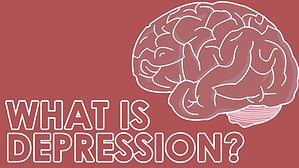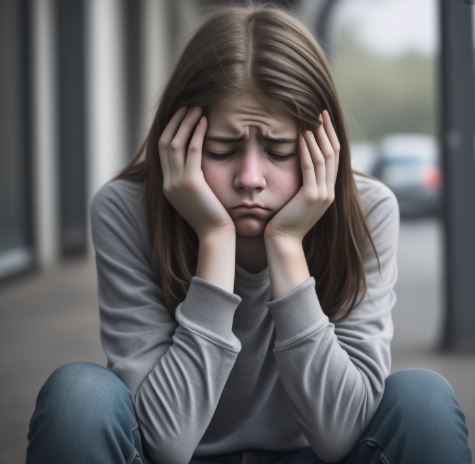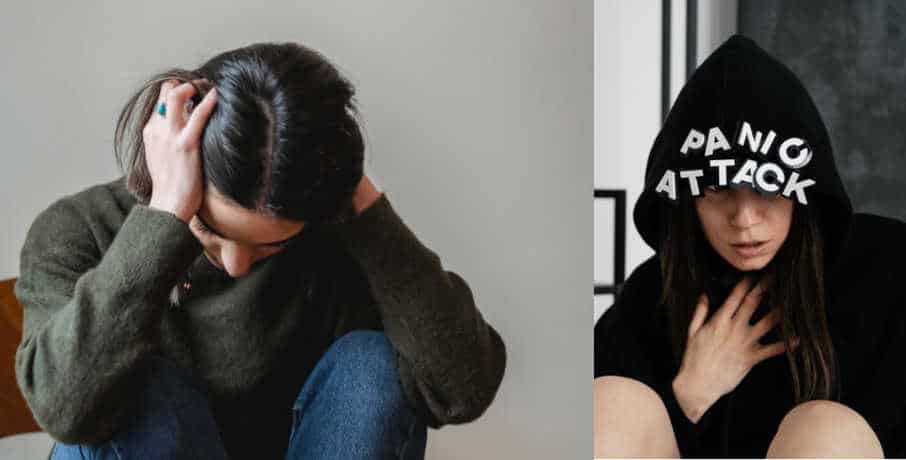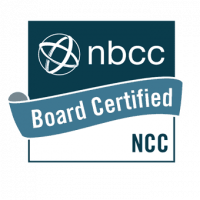4 Key Signs You Need Depression Therapy & Counseling
Depression is a multifaceted mental health challenge that ranges from major depressive disorder to seasonal blues. It has the power to transform joy and hope into despair, affecting relationships, self-esteem, and even work performance. Whether it’s an overarching sadness or a co-occurrence with anxiety, depression’s impact can be profound. But there’s hope: therapy options like cognitive behavioral therapy (CBT) offer a path forward.
Our brains possess an incredible capacity to rewire, allowing us to reshape our thoughts and behaviors. In counseling for depression, we tap into this potential, learning to recognize irrational thoughts and respond in ways that promote emotional balance and well-being. If you find yourself reading this, you may be on the brink of an essential journey towards a more fulfilling life. The understanding, tools, and treatments are available to help you navigate through depression and rebuild a future filled with hope and happiness.
4 Key Signs of Depression
Major Depressive Disorder
Major depressive disorder is a mood disorder that causes a persistent feeling of sadness and loss. If you find yourself in a continuous state of despair, lacking the energy or motivation to carry out everyday tasks, this could be a signal that professional help is required. Depression therapy, such as cognitive behavioral therapy for depression, can help you understand the underlying issues and provide personalized strategies to overcome these feelings.
Chronic Physical Symptoms
Persistent headaches, digestive problems, and other unexplained physical symptoms could be linked to depression. It is a disorder that affects both the mind and body, sometimes manifesting physical symptoms that do not have a clear medical explanation. These signs may indicate the need for depression therapy.
Changes in Behavior and Emotional Well-Being
A feeling of sadness and loss of interest in activities, mood swings, isolation, irritability, and a constant feeling of anxiety are some of the emotional signs of depression. If these symptoms persist for more than two weeks, seeking depression therapy would be wise. Techniques such as psychotherapy used specifically for depression can help you navigate these emotions.
Thoughts of Self-Harm or Suicide
One of the most alarming signs that you need to seek help immediately is having thoughts of death or suicidal thoughts or attempts. This is a clear indication that professional depression support is urgently needed.
What would be the best therapy for depression?
The journey to finding the best therapy for depression starts with understanding one’s unique symptoms, needs, and goals. Cognitive Behavioral Therapy offers a robust and evidence-based approach but must be considered in the context of the individual’s overall mental health picture. Collaboration with a mental health professional can ensure that the therapy chosen is tailored to provide the most effective and compassionate care on the road to recovery.. While several therapeutic approaches can be employed, Cognitive Behavioral Therapy (CBT) for depression stands out as one of the most effective and widely practiced treatments.
Cognitive Behavioral Therapy (CBT)
CBT is a structured, goal-oriented therapy that focuses on the immediate challenges. It’s not just about delving into the past but addressing the current thought patterns and behaviors that maintain depression.
- Identifying Negative Thought Patterns: CBT therapists work with patients to recognize and understand recurring negative thoughts that contribute to depression. By identifying these triggers, patients can begin to challenge and modify them.
- Replacing with Healthier Beliefs: Through regular sessions, therapists guide patients in replacing these detrimental thoughts with positive and realistic ones. It’s a gradual process that requires practice but can lead to significant improvements in mood and outlook.
- Skill Building: CBT equips patients with practical skills to cope with depressive symptoms. These can include stress management techniques, problem-solving strategies, and communication skills.
- Integrated Approach: Often, CBT is used in conjunction with other treatments, such as medication or even complementary therapies like mindfulness or exercise. This integrated approach can maximize recovery by addressing the depression from multiple angles.
Why CBT Stands Out
CBT’s effectiveness is well-supported by clinical research, making it a preferred choice for many mental health professionals. Its structured nature often leads to quicker results, sometimes within 12 to 20 sessions. It’s adaptable, which means it can be used in individual therapy, with couples, or in group therapy settings.
Moreover, the skills learned in CBT are valuable life tools that can continue to benefit individuals long after therapy has ended. This aspect of self-management and empowerment can be especially appealing for those who wish to take an active role in their recovery.
Other Therapies to Consider
While CBT is highly regarded, it’s essential to recognize that therapy is a highly individualized process, and what works best may vary from person to person. Other therapies, such as psychodynamic therapy, interpersonal therapy, or even newer approaches like Mindfulness-Based Cognitive Therapy (MBCT), might be more suitable depending on the specific needs and preferences of the individual.
Megan Corrieri is the best depression therapist in Frisco, TX

MS, LPCC, LPC, NCC
Therapist | Licensed Professional Clinical Counselor | Nationally Certified Counselor
With over 15 years of experience as a seasoned counselor, I specialize in guiding individuals towards overcoming depression and achieving recovery, with a personalized approach that emphasizes trust, resilience, and emotional intelligence. Reach out to me today to schedule your first session, and let’s embark on your journey towards a brighter, more fulfilling future.
Megan is fully licensed in the states of Minnesota and Texas. NorthStar Counseling & Therapy is located at 2591 Dallas Parkway STE 300 in Frisco, TX
What different types of depression are there?
Major Depressive Disorder (MDD): Major Depressive Disorder is characterized by a persistent feeling of sadness or a lack of interest in outside stimuli. This must last for at least two weeks for a diagnosis to be made. MDD can have debilitating effects on everyday life, affecting eating and sleeping patterns, work performance, and general health and well-being.
Persistent Depressive Disorder (Dysthymia): Persistent Depressive Disorder, also known as dysthymia, is a continuous, chronic form of depression. Although the symptoms might not be as severe as in major depression, they last a long time, often two years or more. Those with dysthymia may find it hard to be upbeat even on happy occasions and may be described as having a gloomy personality.
Bipolar Disorder: While not exclusively a form of depression, Bipolar Disorder is characterized by mood swings that include depressive episodes along with manic phases that can lead to impulsive decisions and feelings of invincibility. The depressive episodes have similar symptoms to Major Depressive Disorder but are interspersed with high-energy phases.
Seasonal Affective Disorder (SAD): Seasonal Affective Disorder is a type of depression that occurs at the same time every year, usually in winter when there’s less natural sunlight. It’s sometimes called “winter depression.” The exact cause is not known, but it’s thought to be related to the decrease in sunlight exposure affecting melatonin and serotonin levels.
Postpartum Depression: Postpartum Depression occurs often in new mothers, typically arising within the first three months after childbirth. Hormonal changes, physical strain, and the new responsibility of caring for a newborn can all contribute to postpartum depression, making professional treatment essential.
Atypical Depression: Atypical Depression is a subtype of Major Depressive Disorder and is characterized by mood reactivity, meaning that the person can still respond positively to positive events. Other symptoms may include significant weight gain or an increased appetite, excessive sleeping, a heavy feeling in the arms or legs, and sensitivity to rejection.
Psychotic Depression: Psychotic Depression occurs when severe depressive illness includes some form of psychosis. The psychosis could be hallucinations, delusions, or some other break with reality. Psychotic depression requires immediate medical attention to prevent self-harm or other dangerous behaviors.
Each type of depression has unique features and requires a different approach to treatment. Understanding the specific form of depression can be crucial for effective treatment, so professional diagnosis and care are essential.
14 Symptoms of Depression
It is impotant to know the signs of depression so you can spot the symptoms. Keep in mind there are varying levels of depression and severity of symptoms.
Some key symptoms to be aware of:
- Loss of interest in activities that previously brought pleasure
- Sleep problems, increased fatigue
- Change in appetite and weight
- Feelings of hopeless and anxiety
- Deep sadness, thoughts of death and/or suicidal thoughts or attempts
- Difficulty making decisions
- Feelings of guilt, helplessness, worthlessness
- Headaches, aches, pains
- Digestive problems
- Loss of interest in Sex
- Low energy
- Irritability, anger, frustration
- Mood swings
- Isolation from others and the world around you
What are the 3 most common treatments for depression?
Depression treatment often requires a multi-pronged approach, combining various strategies to address the unique needs and symptoms of each individual. The three most common treatments are psychotherapy, medication, and lifestyle changes, including participation in support groups.
1. Psychotherapy for Depression
Psychotherapy encompasses a range of therapeutic techniques and approaches, with CBT being one of the most prominent. However, psychotherapy is not limited to CBT:
- Interpersonal Therapy (IPT): Focuses on improving interpersonal relationships and social functioning to reduce depression.
- Psychodynamic Therapy: Aims to explore underlying, often unconscious, conflicts and emotions that may be contributing to depression.
- Mindfulness-Based Cognitive Therapy (MBCT): Combines mindfulness strategies with traditional cognitive therapy. These therapies are often personalized to individual needs and can be conducted in individual, group, or family settings.
2. Medication for Depression
Various types of antidepressants are available to alleviate symptoms, and the choice often depends on the specific type of depression, its severity, and the individual’s overall health. Medication management often requires ongoing collaboration with a mental health professional or primary care provider to find the right medication and dose.
- Selective Serotonin Reuptake Inhibitors (SSRIs): Such as fluoxetine and sertraline, work by increasing the levels of serotonin in the brain.
- Serotonin-Norepinephrine Reuptake Inhibitors (SNRIs): Affect both serotonin and norepinephrine. Examples include venlafaxine and duloxetine.
- Atypical Antidepressants: Such as bupropion, which doesn’t fit neatly into another antidepressant category.
3. Lifestyle Changes and Depression Support Groups
Lifestyle interventions can act as both a preventive measure and a complement to other treatments:
- Regular Exercise: Engaging in physical activity can boost mood and energy levels.
- Healthy Diet: Nutrient-dense foods may have a positive impact on overall well-being.
- Sleep Hygiene: Ensuring proper sleep can significantly influence mental health.
- Support Groups: Joining depression support groups can foster a sense of community and shared understanding, making the recovery journey less isolating.
What are the causes of depression?
Depression is a mood disorder that causes a persistent feeling of sadness and loss. This complex condition is far from a mere emotional state; its roots stretch deep into a web of interconnected triggers and underlying factors. Genetic elements, chemical imbalances in the brain, and chronic stress often conspire to fuel this persistent feeling of sadness. Moreover, the disorder’s multifaceted origins include hormonal changes, individual brain structure, childhood traumas, and specific negative life events. Each contributes to depression’s intricate nature, making it more than just a temporary emotion but rather a disorder that causes a persistent feeling of melancholy and a loss of interest or pleasure in daily life.
What is the new therapy for depression?
In the ever-evolving field of mental health, innovative therapies like ketamine treatment and Transcranial Magnetic Stimulation (TMS) are demonstrating substantial promise in treating depression. These cutting-edge methods often come into consideration when traditional approaches fall short.
How do I know if I need depression therapy?
If you find that depressive symptoms are invading your daily life, affecting your relationships, and undermining your overall well-being, especially if these feelings persist for more than two weeks, it’s time to consider professional help. The signs may be subtle, such as losing interest in activities you once enjoyed, feeling consistently tired, or experiencing noticeable changes in eating or sleeping habits. These might be more than just a temporary slump; they could be indicators of a deeper issue. Reaching out to a mental health expert can lead to a proper diagnosis and personalized treatment plan. Therapy sessions, either one-on-one or in a group setting, can provide you with coping strategies, promote personal growth, and substantially enhance your overall quality of life.
When to seek depression therapy
Recognizing that you need help for depression can be a complex and personal journey. If you’re struggling with feelings of hopelessness, constant sadness, physical discomfort, or even thoughts of self-harm, it might be difficult to understand that these symptoms are signals to seek professional guidance. These feelings are more than just a bad day; they might be symptoms of depression, which is unique to each person and can lead to feelings of isolation.
Therapy for depression is not a one-size-fits-all solution. A mental health expert can create a tailored treatment plan that considers your individual situation, helping you foster positive change, enhance communication skills, and develop self-awareness. The process of therapy isn’t just about addressing the negative aspects of depression but can lead to improved energy levels, more fulfilling relationships, and a clearer mind. It’s a path forward to understanding yourself better and creating sustainable, positive change in your life. If you’re experiencing any of these symptoms, reaching out to a mental health professional could be the first step toward healing and personal growth.
What percentage of people suffer from depression?
The prevalence of depression is alarming. U.S. nursing homes and healthcare facilities report up to 50% of residents with clinical depression. This significant figure emphasizes the urgent need for mental health care and support. Unfortunately, limited resources often hinder the provision of optimal care, thus underscoring the critical role of private mental health professionals in satisfying the population’s needs.
What do people do in therapy for depression?
Conclusion
Depression, a complex mood disorder, affects both mind and body, casting a profound impact on overall well-being. The path to recovery begins with understanding the various forms of depression, identifying symptoms, and seeking professional guidance at the right time. At Northstarfrisco.com, we take your mental health seriously and are devoted to helping you explore the therapeutic options tailored to your needs.
Don’t hesitate to contact us for a personalized consultation. You don’t have to walk this path alone. Let’s join hands to create a future filled with hope, healing, and brightness.
We will create a personalized treatment plan for you that will address your unique needs and goals. This will empower you to make lasting changes and embrace a more fulfilling life. Let NorthStar Counseling & Therapy guide you on the path to wellness and personal growth.

Owner, Clinician, Wife & Mom
Share:









